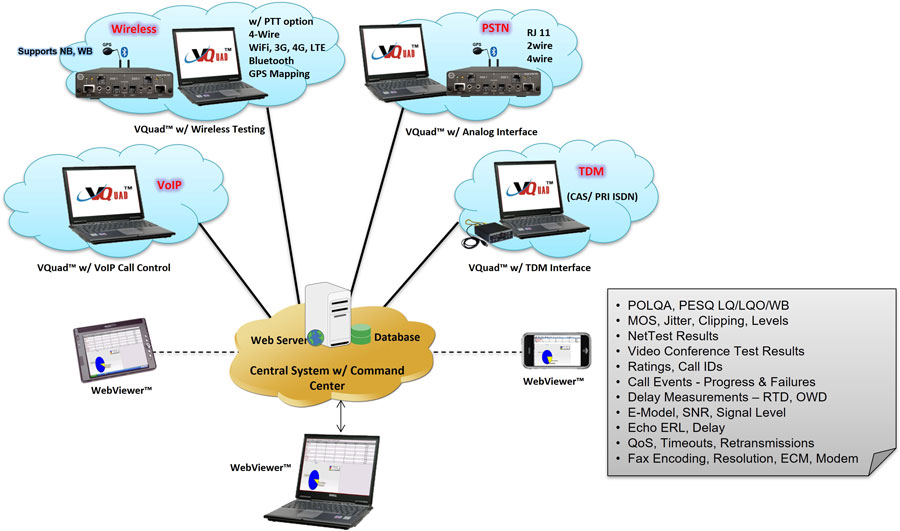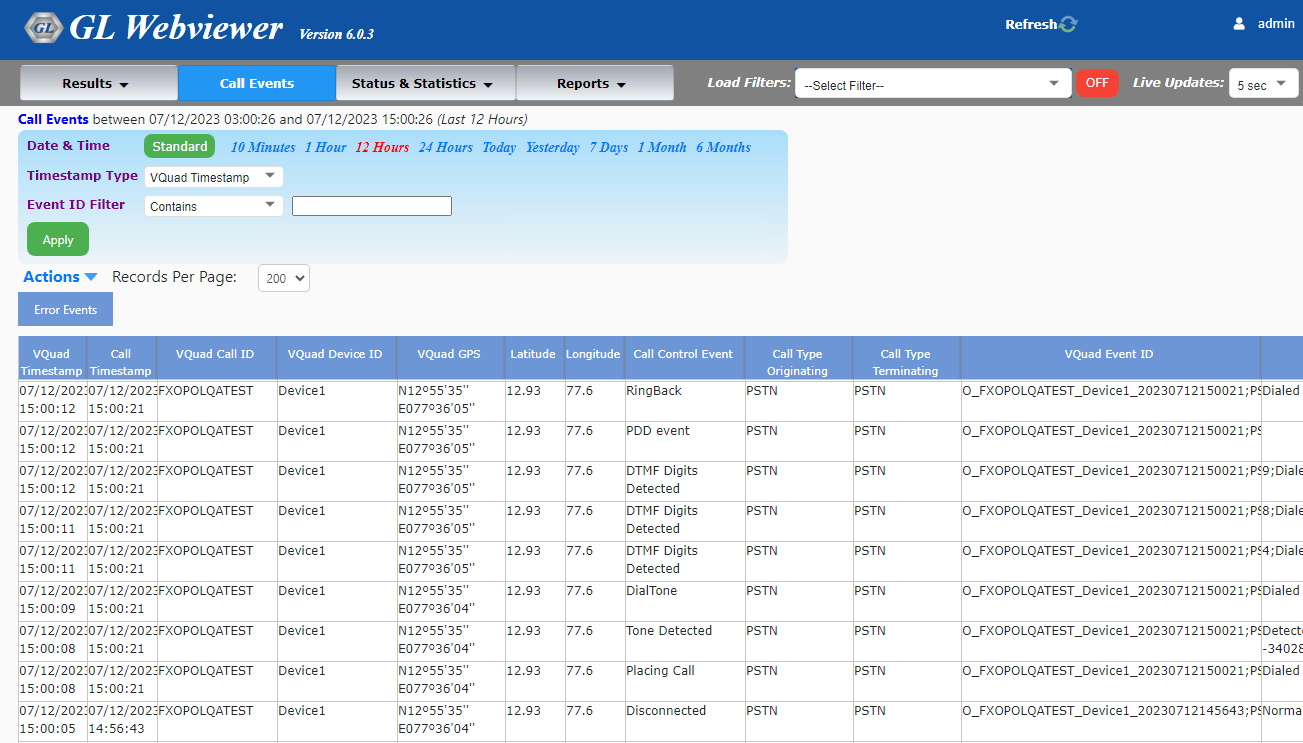Newsletter: GL Announces System Wide Network Testing Solutions
Welcome to an April 2010 issue of GL's Newsletter providing information and insight into our System-wide Network Testing Solutions.
Overview
Voice quality, signaling methods, and delay vary with each type of network - wireless, PSTN, or VoIP. An end to end network test system that can easily interface to each network type and automatically and centrally perform vital measurements is desirable. GL has just such a solution.
GL's system consists of individual probes, both fixed and mobile, remotely controlled, and automated through scripts and schedules. All results are automatically cataloged and easily accessed by a standard web browser. Measurements such as call failures, voice quality, delay, and echo are made for each and every call. The data is centrally available and accessible from a single location with user friendly filtering and querying capabilities.
Introducing GL's System Wide Network Testing Solution

GL's solution deploys intrusive probes which that connect to any interface, including mobile wireless, 2-wire analog, VoIP softphone, PTT radio, and T1/E1 PRI. These intrusive probes run GL's VQuad™ software. Non-intrusive probes may also deployed at various points within the VoIP and TDM networks. All results associated with the intrusive and non-intrusive nodes are automatically transferred to a central location where analysis applications, databases, and a Command Center provide for automated operation, email alerts, and a web server. Users may access the command center and databases via a standard web browser.

The WebViewer™ is a web based browser. One can easily and remotely connect to the central database over any internet connection. The WebViewer™ supports querying the central database and includes advanced search criteria such as time/date range, phone number, measurement threshold values, and call progress events. The WebViewer™ displays the results both in tabular and graphical formats and supports text and Excel formatted outputs. Statistics of all results is available including a customized statistics screen based on user-defined criteria. Complete real-time status of the entire network including all intrusive/non-intrusive nodes and status history is available.
Finally, using the WebViewer™ one can remotely access any probe within the network for remote operation. The WebViewer™ includes operations such as load/start/stop individual tests as well as the ability to configure individual tests and transfer a test script to individual probes.

Individual Elements of GL's System Wide Network Testing Solution
VQuad™ intrusive probes
- Various interfaces including Mobile, Bluetooth®, 2-Wire Analog FXO, 4-Wire Balanced Analog, Phone Handset, PTT Radio, VoIP SIP, T1/E1 PRI/CAS
- Remotely controlled
- Fully automated with sophisticated scripting and remote operation
- Results sent to central location
- Small footprint, either rack mounted or laptop/netbook operation
- VQT, OWD, RTD, SNR, CFR, Bluetooth®, Voice and Data
- All networks and phones supported
Non-intrusive probes
- VoIP analysis of RTP and protocol
- TDM analysis
- Fax and modem analysis
Central Location
- Central database (Oracle and MS Access supported) with all results
- All results and testing files sent to central location for analysis
- Fail/safe mechanisms if TCP/IP network fails or momentarily drops
- User-defined Email alerts
- Intrusive tests associated with individual probes automatically started/stopped using central Command Center
Analysis
- Voice Quality PESQ (ITU-P.862.1/2)
- Voice Analysis including SNR, Signal level, Noise Level, Echo, Delay
- VoIP RTP Packet Analysis
- Data analysis
- Analog E-Model QoS
- Web based browser for accessing all results
- Results (tabular and graphical) include VQT, Call Control, Time/Delay Measurements, Error events
- Statistics include VQT, Time/Delay, Call Rates, and user-defined
- Search and filtering based on time/date, called number, measurement ratings or thresholds, location, test scenarios, and user-defined events
- Network Status of all probes and systems at remote locations and central location. Status includes currently running tests
- Remote operation of individual probes and central location. Remotely configure load and start/stop tests
- Multi-user with available login security and privileges settings
 Back to Latest News Page
Back to Latest News Page